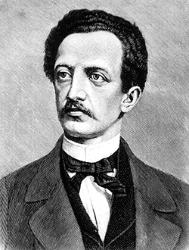“I believe in Ferdinand Lassalle, the Messiah of the nineteenth century…” thus begins a socialist version of the Apostles’ Creed popular among his followers. Today he is best remembered as one of the founding fathers of German Social Democracy. But at the time, Lassalle was also the object of intense emotional attachments and fantasy productions. As part of an emerging socialist mythology, his celebrity status attests to an unusually personal engagement with political questions made possible by new literary genres and forms of political engagement. At first glance, the public fascination with his personal life seems far removed from the realities of working-class life and antithetical to the socialist ethos of community. But as this talk will demonstrate, the socialist movement in fact relied heavily on the products of the culture industry to strengthen socialist commitments and forge proletarian identifications. This point is important not only for a better understanding of the history of socialism but also for a historical perspective on the merging of political culture and celebrity culture today.
Sabine Hake holds the Texas Chair of German Literature and Culture at the University of Texas at Austin. Her research on Weimar and Third Reich culture and German cinema focuses on the relationship between cultural practices and aesthetic sensibilities, on the one hand, and social movements and political ideologies, on the other. She is currently working on two book projects: a reassessment of German cinema from the perspective of media convergence and a study on the German proletariat as an imaginary subject in literature, art, film, and political theory.





